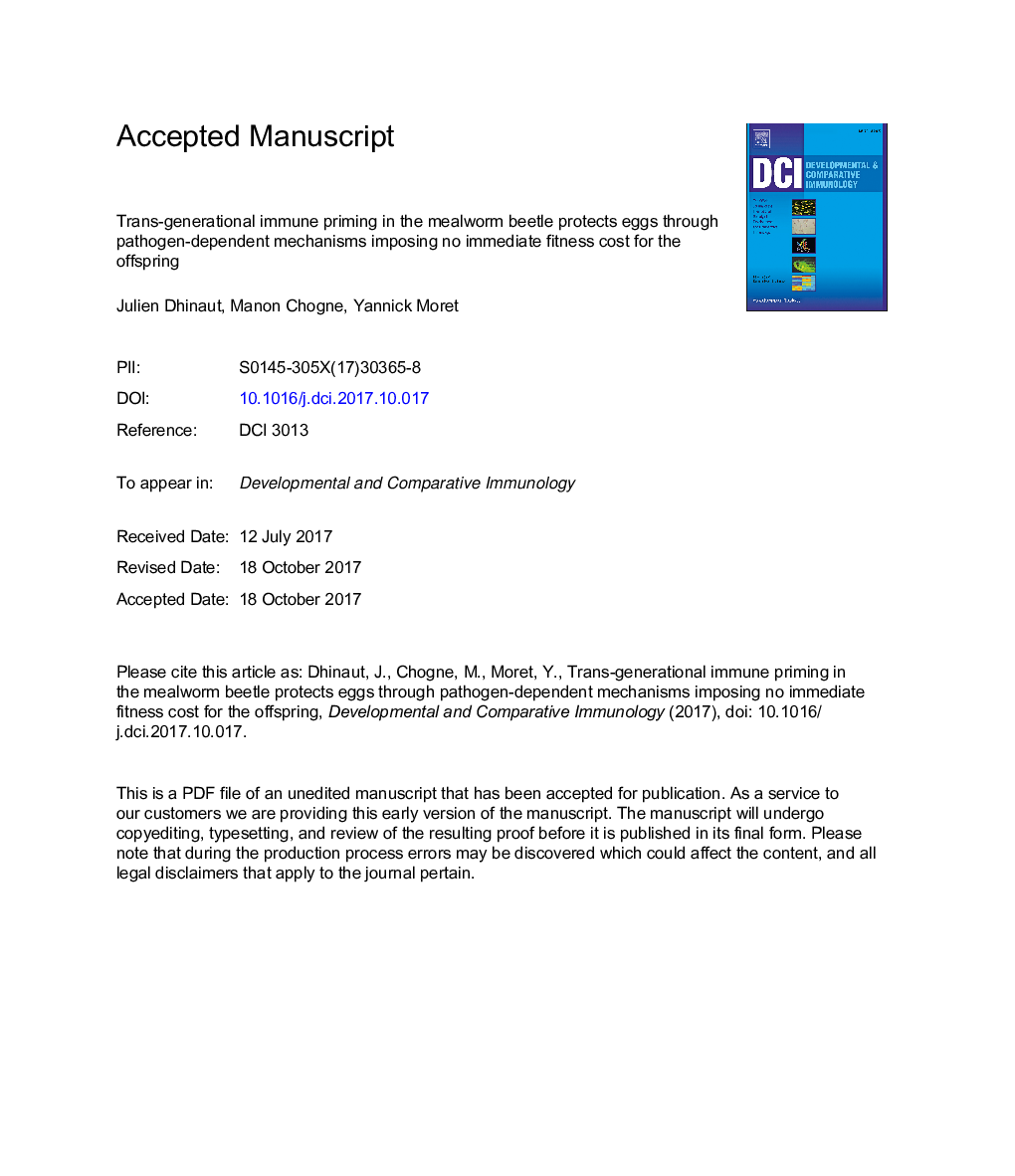| کد مقاله | کد نشریه | سال انتشار | مقاله انگلیسی | نسخه تمام متن |
|---|---|---|---|---|
| 8497868 | 1553553 | 2018 | 36 صفحه PDF | دانلود رایگان |
عنوان انگلیسی مقاله ISI
Trans-generational immune priming in the mealworm beetle protects eggs through pathogen-dependent mechanisms imposing no immediate fitness cost for the offspring
ترجمه فارسی عنوان
چسبندگی ایمنی بین نسل ها در سوسک کرم خوراکی از تخمک ها به وسیله مکانیسم های وابسته به پاتوژن جلوگیری می کند و هزینه های فوری برای فرزندان را تأمین نمی کند
دانلود مقاله + سفارش ترجمه
دانلود مقاله ISI انگلیسی
رایگان برای ایرانیان
کلمات کلیدی
تعامل میزبان-پاتوژن، ایمونولوژی محیطی، بی مهرگان، اثرات مادری، هزینه های تناسب اندام،
موضوعات مرتبط
علوم زیستی و بیوفناوری
بیوشیمی، ژنتیک و زیست شناسی مولکولی
زیست شناسی تکاملی
چکیده انگلیسی
Immune-challenged mothers can improve their offspring immunity through trans-generational immune priming (TGIP). In insects, TGIP endows the offspring with lifetime immunity, including the eggs, which are likely exposed soon after maternal infection. Egg protection may rely on the transfer of maternal immune effectors to the egg or/and the induction of egg immune genes. These respective mechanisms are assumed to have early-life fitness costs of different magnitude for the offspring. We provide evidence in the mealworm beetle Tenebrio molitor that enhanced egg immunity following a maternal immune challenge is achieved by both of these mechanisms but in a pathogen-dependent manner. While previously found having late-life fitness costs for the offspring, TGIP here improved egg hatching success and early larval survival, in addition of improving offspring immunity. These results suggest that early-life of primed offspring is critical in the optimization of life history trajectory of this insect under trans-generational pathogenic threats.
ناشر
Database: Elsevier - ScienceDirect (ساینس دایرکت)
Journal: Developmental & Comparative Immunology - Volume 79, February 2018, Pages 105-112
Journal: Developmental & Comparative Immunology - Volume 79, February 2018, Pages 105-112
نویسندگان
Julien Dhinaut, Manon Chogne, Yannick Moret,
